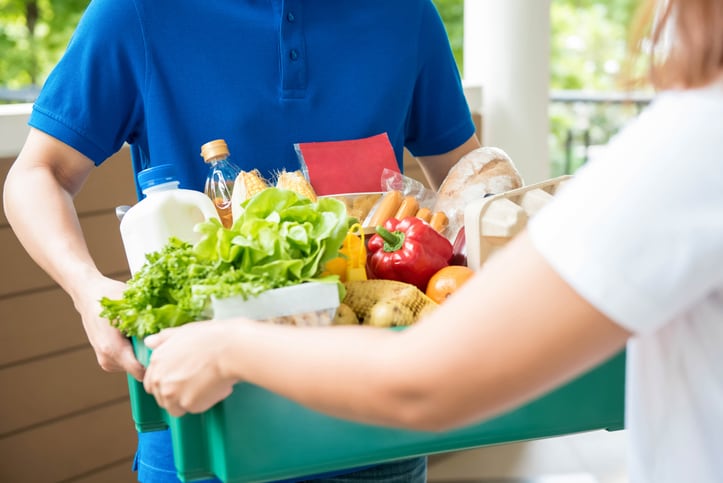Alibaba’s grocery arm Freshippo saw a surge in demand as well as new users during the January to February period this year when the COVID-19 outbreak was at its peak in the country, and believes that the pandemic has actually catalysed the growth of the online grocery sector.
“The COVID-19 outbreak accelerated key trends driving the growth in online grocery sales,” Freshippo CEO and Alibaba Group Vice President Hou Yi told FoodNavigator-Asia.
“We believe there will be a further acceleration in the digital transformation of the retail sector, with the pandemic encouraging more people, especially the older generation, to try and experience online shopping, even for groceries.
“This increased adoption of online shopping is an additional impetus for retail and service industries to integrate online and offline shopping, and digitize their supply chains. Consumers will be able to appreciate the benefits and efficiencies, leading to more demand.”
In addition, the Chinese government has also played an active role here by distributing electronic consumption vouchers to the public, serving as an additional push towards business digitization as well.
The other major trend that is predicted to benefit, per se, from the outbreak is that of healthier foods and snacks.
“Consumers are also becoming more health conscious in general and the pandemic prompted even more to be aware of their health and lifestyles,” he said.
“Apart from learning and increasingly preparing their own meals at home, the growing availability of healthy snacks, organic and low-fat food options is also something appreciated by consumers. Freshippo is looking at developing or introducing even more products in this range to answer consumer’s changing preferences.”
One example here could be snack brand Good Gout, which specializes in organic children’s snacks and has already voiced interest in expanding into the Freshippo platform.
Consumer insights analysts have previously also predicted that cooking at home will be one of the major areas of growth in China, with food purchase preferences shifting from convenient, fast, often unhealthy options which were more prevalent previously, towards foods for home-cooking such as fresh meat and vegetables.
“In-home eating experiences have been reset – even after life returns to normal post COVID-19, [Chinese consumers] are emerging with more of a ‘homebody’ mindset, [and] for many consumers used to eating on-the-go, home cooking may be a new concept or habit, and they will need help to adjust to this new world,” said Nielsen China President Justin Sargent.
Alibaba concurred with this prediction, saying that: “With people staying home, many seem eager to spend their time to practice baking and cooking. Apart from a surge in demand for fresh food items including meats, fruits, vegetables, and so on, some of our bestselling items during the outbreak were ready-to-cook products and baking products such as flour as well as cooking sauces.”
“While younger consumers still prefer ready-to-cook products based on our sales, COVID-19 has sparked an interest in many to cook at home. We believe there is a lot of room to grow when catering to this demographic, for both ready-to-cook products and fresh groceries delivery.”
Alibaba during COVID-19
According to data from Freshippo, demand for its online grocery services had soared earlier this year when China first introduced its COVID-19 lockdown in January followed by Chinese New Year which fell on January 25 and 26.
“The Chinese New Year period coincided with the growing severity of the COVID-19 pandemic, meaning many Chinese consumers were already observing social distancing ahead of expanding lockdown measures. This meant more demand for Freshippo services, with more families eating at home,” said Hou.
These findings were corroborated by research from HAVAS China, which found that Freshippo saw the largest gain in Daily Average Users (DAUs) amongst all the fresh-food e-commerce apps it analysed, recording a 127.5% year-on-year rise in DAUs to hit 2.95 million users in the January to February 2020 period.
In addition, Alibaba highlighted that it had managed to protect the employment of thousands of its employees during the outbreak through its employee-sharing scheme, preventing redundancies and unemployment rates shooting up in the market, and said this would be a preparedness measure for the firm moving forth.
“Our employee-sharing scheme provided temporary jobs at Freshippo for excess workers from hospitality, dining, movie theaters, department stores and various other sectors. It has worked very well for us as well with the increased demand of Freshippo’s services, and this model is something worth exploring further,” he said.
“We can not only optimize human resource allocation and productivity during future events of a similar nature but help support the rising demand for online groceries effectively and continue to deliver perishable items speedily.”





